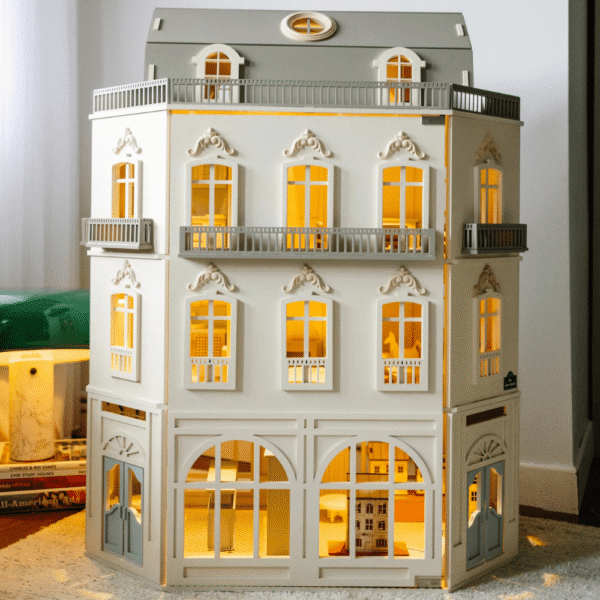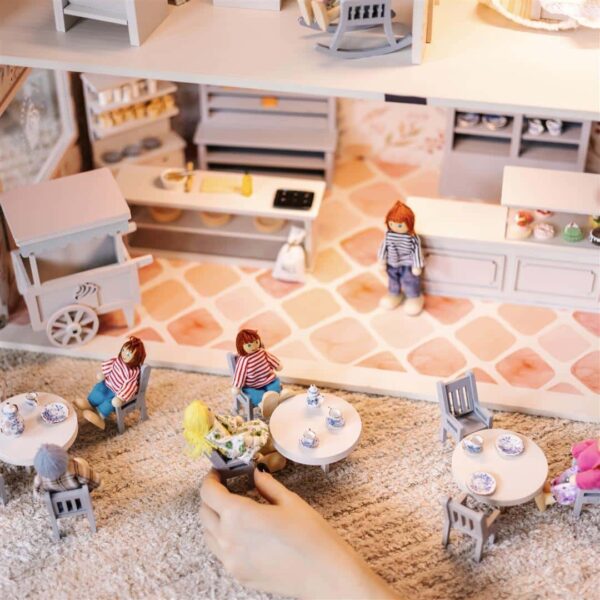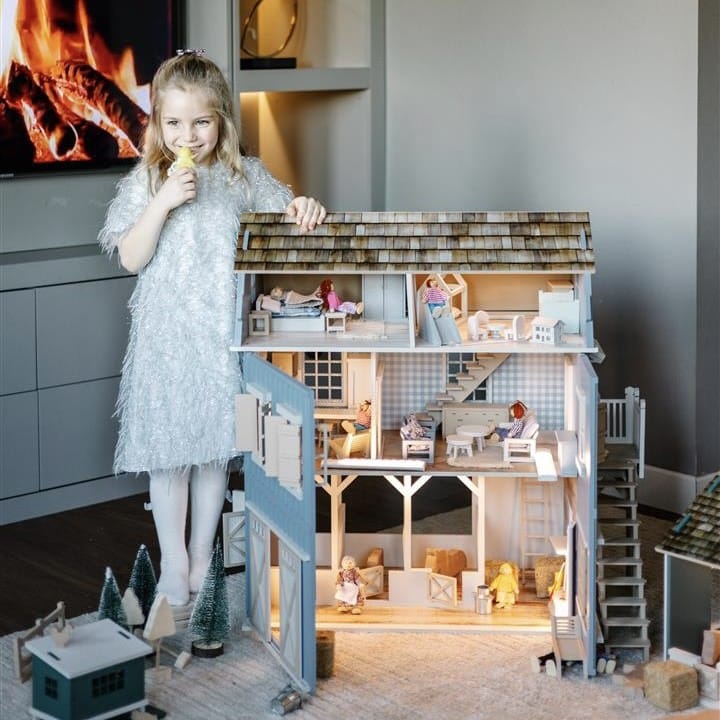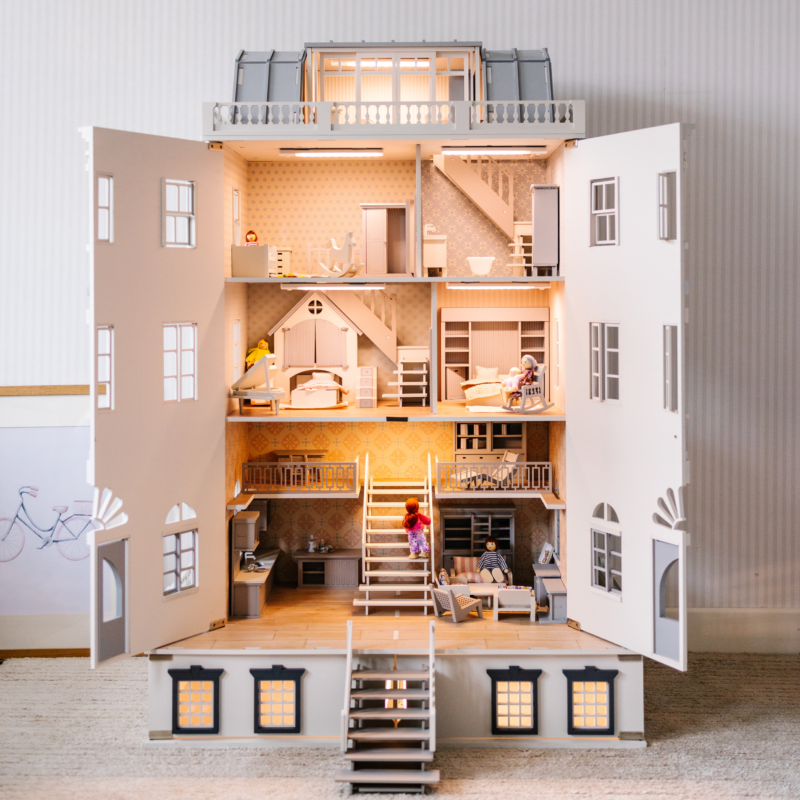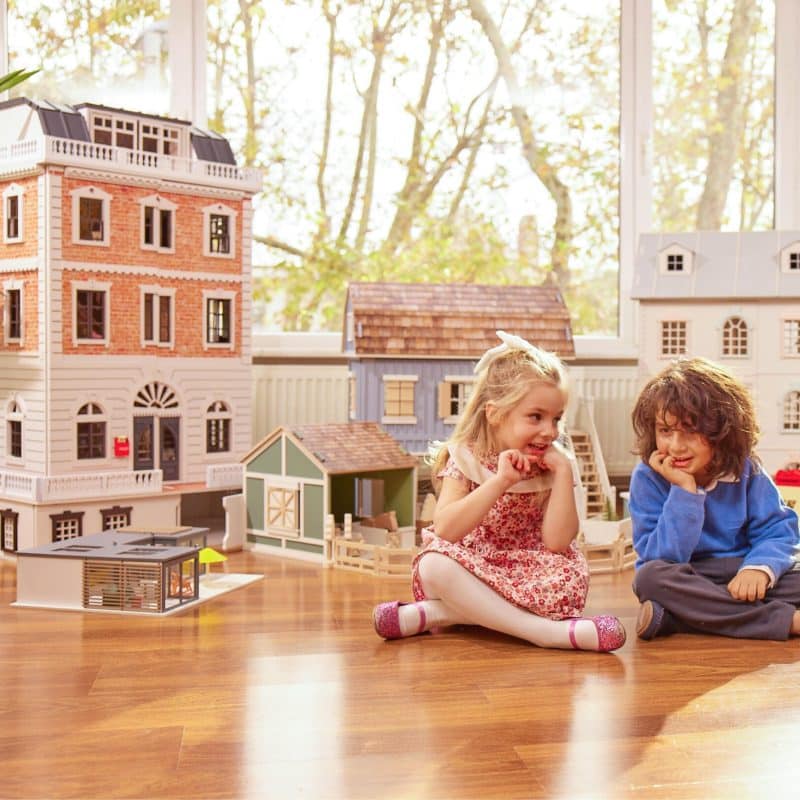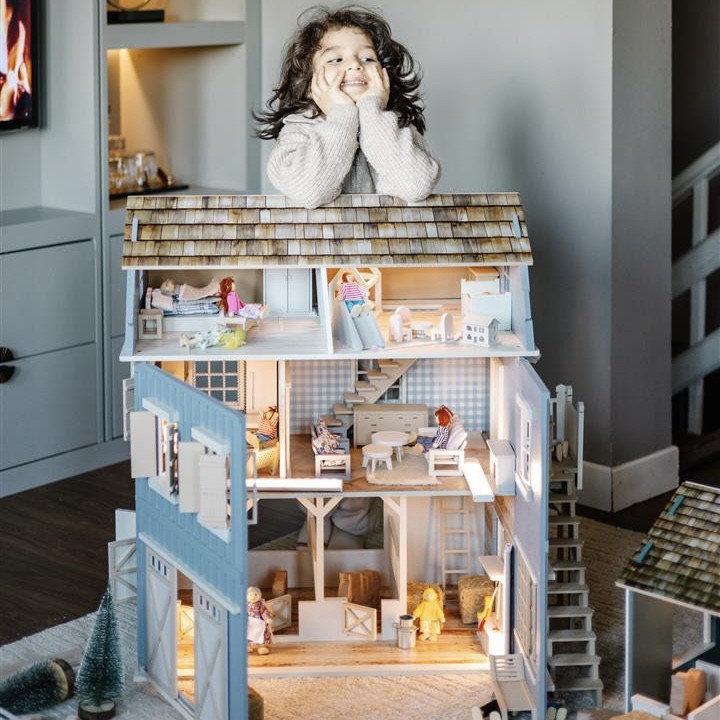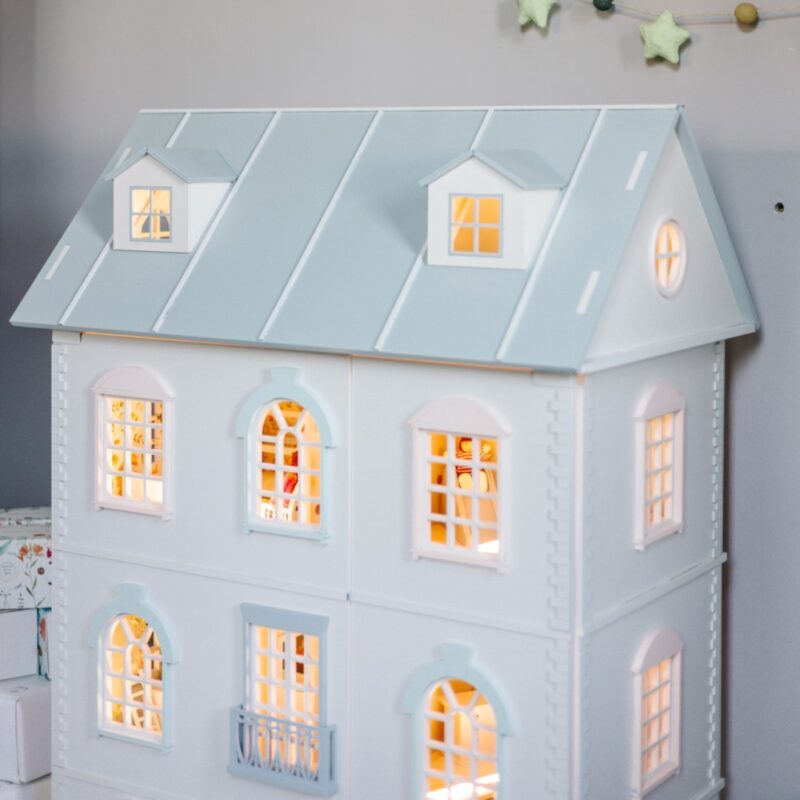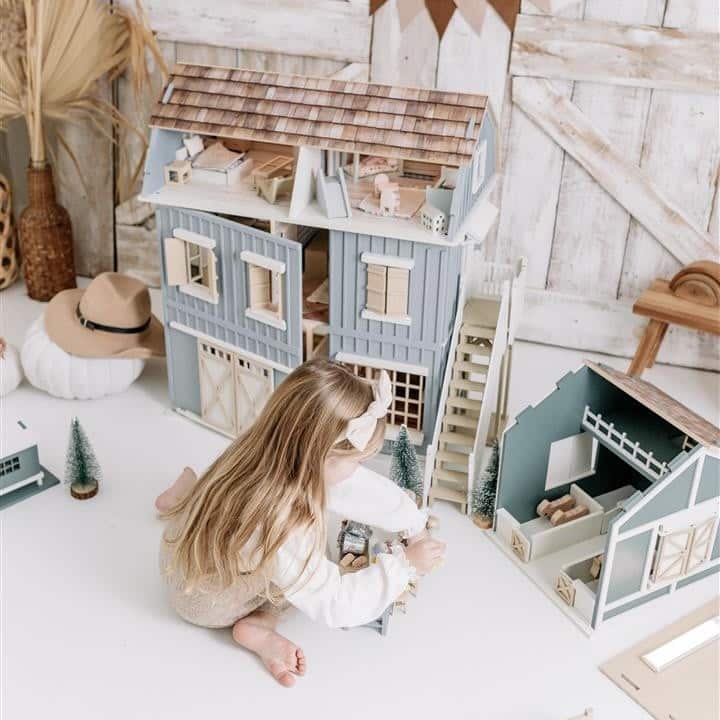The Cognitive and Social Benefits of Dollhouse Play for Children
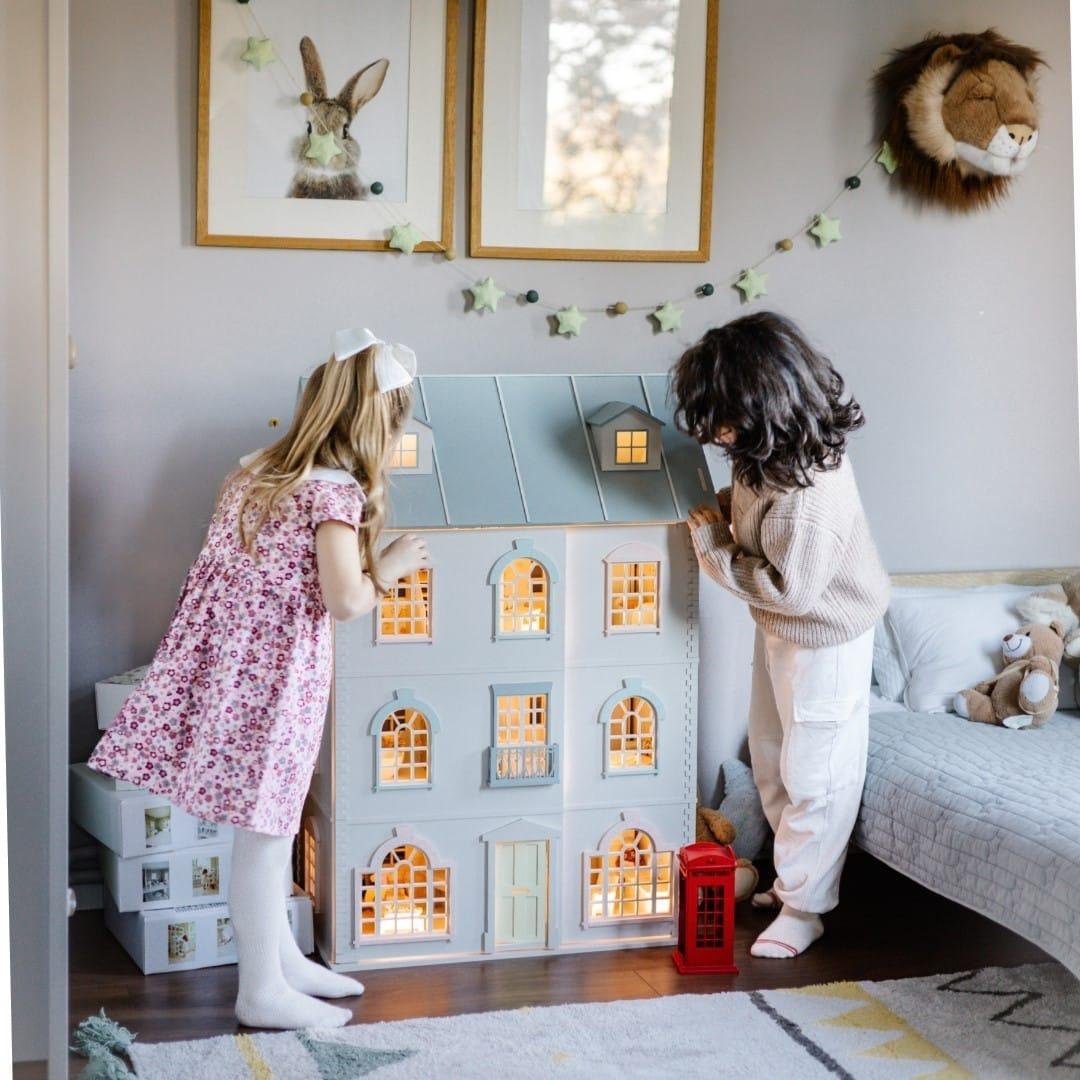
Playing with dollhouses has always been a favorite pastime for children. Beyond just being fun, it offers a rich array of cognitive and social benefits that help children develop crucial life skills. In this blog post, we will explore how dollhouse play nurtures a child’s cognitive abilities, promotes social interaction, and even enhances problem-solving skills.

1. Stimulating Cognitive Development
Dollhouse play provides a platform for children to learn about everyday life in a hands-on manner. They organize rooms, decide where the furniture goes, and imagine scenarios for their miniature characters. These activities foster cognitive development by encouraging kids to practice planning, organization, and spatial awareness. They learn how objects fit into space and how to visualize outcomes based on decisions they make.
Additionally, dollhouses help children learn about cause and effect. For example, they may decide that a character spills something in the kitchen, which requires another character to clean it up. By engaging in such activities, children learn the relationships between actions and consequences.
2. Improving Language and Communication Skills
One of the strongest benefits of dollhouse play is its ability to improve language and communication skills. Children often narrate stories about what’s happening in their dollhouse, either aloud or in their minds. They give voices to their characters, creating dialogue that mimics real-life interactions. This helps them expand their vocabulary, practice sentence structure, and explore new ways to express their thoughts.
Furthermore, when children play with others, they need to negotiate roles, decide on a storyline, and communicate their ideas effectively. Such social play with a dollhouse enhances their ability to listen to others, understand different perspectives, and articulate their own ideas in a collaborative environment.
3. Fostering Empathy and Social Awareness
When children play with a dollhouse, they often enact situations that they observe in their daily lives. This can include anything from family dynamics to school situations. By stepping into the roles of different characters, children gain insights into how others might feel. For example, they may act out a character feeling sad, then think of ways to comfort them. This fosters empathy and helps children understand complex emotions.
Playing with a dollhouse also allows kids to experience different social scenarios in a low-risk environment. They can experiment with conflict resolution, sharing, and managing emotions through their characters. These experiences lay the foundation for stronger interpersonal skills, which will serve them well in social settings such as school.
4. Boosting Creativity and Imagination
A dollhouse is a blank canvas that allows children to let their imagination run wild. They can create complex storylines involving different characters, settings, and scenarios. The freedom to decorate, rearrange furniture, and invent unique stories helps children boost their creativity. Unlike structured play, where there are rules and outcomes, dollhouse play is open-ended, giving children complete creative control over their little world.
This level of imaginative play also enhances children’s ability to think abstractly and envision possibilities beyond their immediate environment. They may create a fantasy world, a miniature farmhouse, or even a bustling city inside their dollhouse, each requiring them to think creatively and solve any challenges that arise.
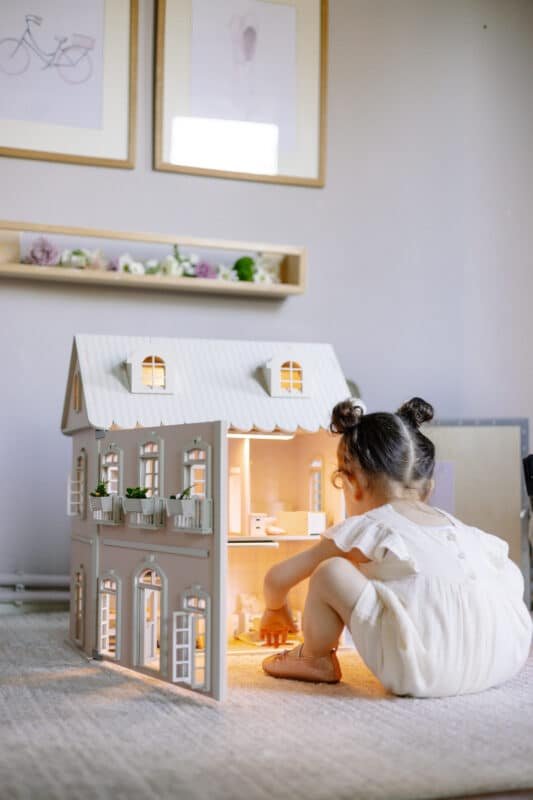
5. Problem Solving and Critical Thinking
Dollhouse play presents children with countless opportunities to develop problem-solving skills. They may face challenges like how to make all the furniture fit into a room or how to make a character reach the top floor. Overcoming these challenges requires critical thinking, spatial reasoning, and resourcefulness.
For instance, a child may decide that the living room furniture doesn’t quite fit the way they imagined it, prompting them to think about different arrangements until everything fits comfortably. These activities, though small, are essential in helping children develop the critical thinking skills they will need as they grow older.
6. Encouraging Independent Play
While dollhouses are great for social play, they are also perfect for encouraging independent play. Children can spend hours creating their own world, which is crucial for developing self-reliance and problem-solving abilities. During this time, they make decisions on their own, create their own rules, and solve challenges without any outside help. Independent play not only enhances creativity but also builds confidence, as children experience a sense of accomplishment from creating and controlling their miniature universe.
Conclusion
The benefits of playing with dollhouses go far beyond entertainment. Dollhouse play is a powerful tool that fosters cognitive development, language and communication skills, creativity, empathy, and problem-solving. It provides a rich and rewarding way for children to explore the world around them in a safe, imaginative space.
Encourage your child to explore the possibilities with our delightful dollhouses at Little Forest Animals, where imagination and learning go hand in hand!
FAQ
Q: What age is suitable for dollhouse play? A: Children as young as 3 years old can begin playing with dollhouses. They provide a versatile and engaging way for young children to develop their creativity and social skills.
Q: How can dollhouses benefit a child’s development? A: Dollhouses help improve language skills, foster empathy, boost creativity, and encourage problem-solving and independent play.
Q: Are there different types of dollhouses available? A: Yes, there are many styles including Victorian dollhouses, farmhouses, and modern city dollhouses—each offering unique imaginative experiences.
Q: Can playing with dollhouses be a social activity? A: Absolutely! Dollhouse play is perfect for both individual and group activities, helping children learn cooperation and social interaction.

